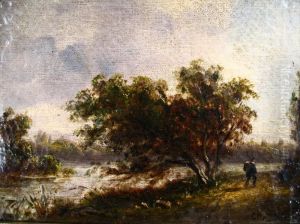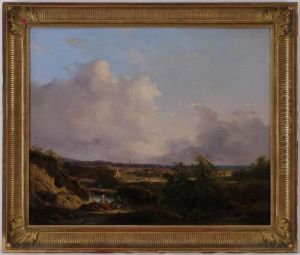Charles Fr. Duvernoy Paintings
Charles Frédéric Duvernoy was a French musician and composer, born on October 16, 1766, in Montbéliard, which at the time of his birth was part of the Principality of Montbéliard but is now located in the Doubs department in the Bourgogne-Franche-Comté region of France. He is mostly known for his contributions to the repertoire for the clarinet, which was an evolving instrument during his lifetime.
Duvernoy's musical career began in the latter part of the 18th century, a period that saw significant changes in the cultural and political landscape of France due to the French Revolution and the subsequent Napoleonic Wars. Despite the tumultuous times, Duvernoy managed to establish himself as an accomplished clarinetist and composer. He was associated with the Paris Opéra and served as a professor at the Paris Conservatoire, which was founded in 1795 and played a crucial role in the development of French music education.
As a composer, Duvernoy created several works for the clarinet, including concertos, chamber pieces, and studies that were designed to assist in the pedagogical development of clarinet technique. His compositions are characterized by the classical style of the era, emphasizing clarity, balance, and form, which were hallmarks of the music of contemporaries such as Haydn, Mozart, and early Beethoven.
Duvernoy's contribution to music education was significant. His method books and études for clarinet were used extensively for teaching purposes and helped to standardize clarinet technique. Through his teaching at the Conservatoire, he influenced a generation of clarinetists and helped to elevate the status of the clarinet as a solo and orchestral instrument.
Charles Frédéric Duvernoy passed away on July 19, 1845, in Paris. Although he may not be as widely recognized as some of his contemporaries, his work remains an important part of the clarinet repertoire and his pedagogical materials continue to be of value to clarinet students and teachers.

